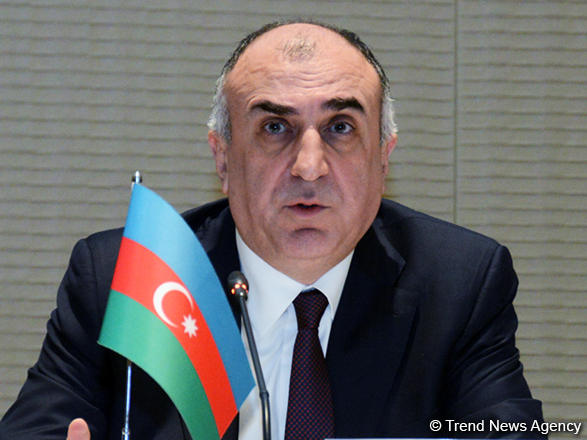Baku, Azerbaijan, Aug. 31
Trend:
It is an absolute necessity that the key principles enshrined in the Global Strategy for the EU’s Foreign and Security Policy, particularly those pertaining to the sovereignty, territorial integrity and the inviolability of borders, are equally respected by all states, said Azerbaijani Foreign Minister Elmar Mammadyarov.
He was addressing a meeting of foreign ministers of the Visegrad Group (V4) and the Eastern Partnership (EaP) countries in Budapest Aug. 31.
Only living up to the principles identified as the key elements of the European security order will determine the EU’s credibility and influence it for the years ahead, according to Mammadyarov.
He noted that today, the sovereignty and territorial integrity of four out of six Eastern Partnership countries continue to be undermined due to the existing conflicts.
“It is already third decade that Armenia – a member of the Eastern Partnership – has been using force against the sovereignty and territorial integrity of another member of the EaP and continues to keep one-fifth of Azerbaijan’s internationally recognized territories under military occupation. Armenia carried out notorious ethnic cleansing on all seized lands of Azerbaijan,” said the Azerbaijani FM.
The unlawful presence of the armed forces of Armenia in the territories of Azerbaijan is the major impediment to political settlement of the conflict, he added.
The conflict between the two South Caucasus countries began in 1988 when Armenia made territorial claims against Azerbaijan. As a result of the ensuing war, in 1992 Armenian armed forces occupied 20 percent of Azerbaijan, including the Nagorno-Karabakh region and seven surrounding districts.
The 1994 ceasefire agreement was followed by peace negotiations. Armenia has not yet implemented four UN Security Council resolutions on withdrawal of its armed forces from the Nagorno-Karabakh and the surrounding districts.






